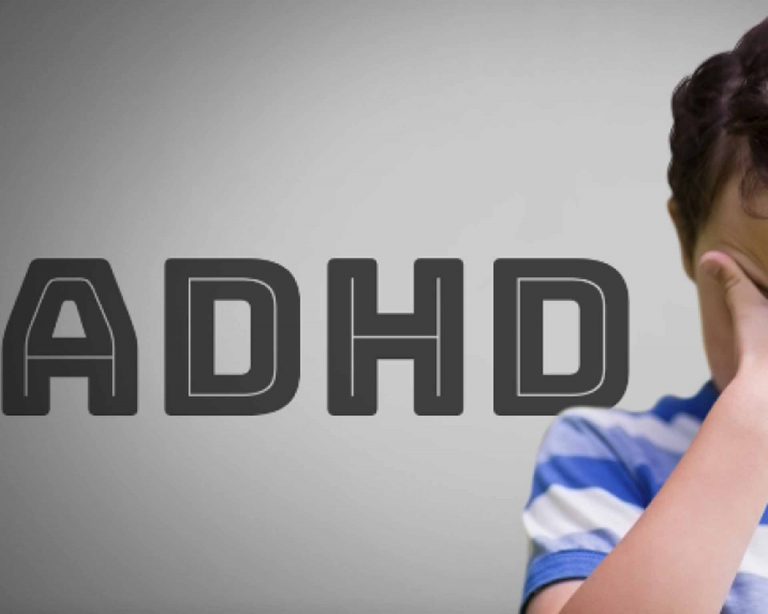Are you a parent or teacher navigating the world of Attention-Deficit/Hyperactivity Disorder (ADHD)? Let’s embark on a journey together to uncover the challenges and uncover the potential that lies within children with ADHD. This article aims to help you better understand ADHD and provide practical strategies to foster their development and well-being.
Understanding ADHD: A Different Way of Thinking
ADHD, characterized by difficulties with attention, impulsivity, and hyperactivity, is often misunderstood. However, we must recognize that children with ADHD perceive and interact with the world in unique ways. They possess strengths like creativity, energy, and a knack for out-of-the-box thinking.
Strategies for Parents: Building a Nurturing Environment at Home
As a parent, creating an organized and predictable home environment can significantly benefit your child. This includes:
- EstablishingRoutines:
Structure and routine can provide a sense of security for children with ADHD, helping them know what to expect throughout the day. This could involve regular meal times, a consistent bedtime routine, and a structured after-school schedule with time for homework, relaxation, and physical activity. - ClearCommunication:
Children with ADHD often benefit from clear, concise instructions. It might help to make eye contact when giving instructions, break tasks down into smaller steps, and ask the child to repeat the instructions back to you to ensure understanding. - EncouragingPhysicalActivityandaHealthyDiet:
Regular physical activity can help manage ADHD symptoms. It can also help children sleep better, which is often a challenge for those with ADHD. A healthy, balanced diet is also crucial. There is some evidence that certain food additives and high levels of sugar might exacerbate ADHD symptoms, although more research is needed in this area. - PromotingGoodSleepHabits:
Sleep issues are common in children with ADHD. Ensuring a regular sleep schedule, creating a quiet and comfortable sleep environment, and limiting electronic devices before bedtime can help improve sleep quality.
Remember, it’s crucial to maintain open communication with your child, letting them know that they can always reach out to you with their feelings and concerns.
Strategies for Teachers: Fostering Success in the Classroom
Teachers, you play an essential role in the development of children with ADHD. Here are a few strategies you can employ in your classrooms:
- IncorporateMovementandBreaks:
Regular short breaks can help children with ADHD manage their energy levels and maintain focus. This could involve a quick stretch, a walk around the classroom, or a few minutes of quiet downtime. - ClearInstructionsandExpectations:
Like with parents, clear and concise communication is essential in the classroom. It can be helpful to provide written instructions for tasks and use visual aids to help children understand and remember what they need to do. - UtilizeVisualAids:
Visual aids, like charts, graphs, and diagrams, can help children with ADHD process and remember information. Interactive learning tools can also be beneficial. - InclusiveClassroomEnvironment:
Fostering a supportive and inclusive environment is crucial. Encourage understanding and empathy among students and celebrate the unique strengths and contributions of each child in your class.
Remember that collaboration with parents and other professionals is critical to creating a comprehensive support system for the child.
By understanding and acknowledging the unique needs and potential of children with ADHD, we can help them thrive both academically and socially. Let’s embrace this journey together.
References:
- American Psychiatric Association. (2013). Diagnostic and Statistical Manual of Mental Disorders (5th ed.). https://doi.org/10.1176/appi.books.9780890425596
- White, H. A., & Shah, P. (2011). Creative style and achievement in adults with attention- deficit/hyperactivity disorder. Personality and Individual Differences, 50(5), 673–677. https://doi.org/10.1016/j.paid.2010.12.015
- Barkley, R. A. (2013). Taking Charge of ADHD: The Complete, Authoritative Guide for Parents (3rd ed.). Guilford Press.
- Schachter, H. M., et al. (2001). How efficacious and safe is short-acting methylphenidate for the treatment of attention-deficit disorder in children and adolescents? A meta-analysis. Canadian Medical Association Journal, 165(11), 1475–1488.
- DuPaul, G. J., & Stoner, G. (2014). ADHD in the Schools, Third Edition: Assessment and Intervention Strategies. Guilford Publications.
- Verret, C., Guay, M. C., Berthiaume, C., Gardiner, P., & Béliveau, L. (2012). A physical activity program improves behavior and cognitive functions in children with ADHD: an exploratory study. Journal of attention disorders, 16(1), 71-80. https://doi.org/10.1177/1087054710379735
- Nigg, J. T., Lewis, K., Edinger, T., & Falk, M. (2012). Meta-analysis of attention-deficit/hyperactivity disorder or attention-deficit/hyperactivity disorder symptoms, restriction diet, and synthetic food color additives. Journal of the American Academy of Child & Adolescent Psychiatry, 51(1), 86–97.e8. https://doi.org/10.1016/j.jaac.2011.10.015
- Owens, J. A. (2005). The ADHD and sleep conundrum: a review. Journal of Developmental & Behavioral Pediatrics, 26(4), 312-322.
- Jensen, P. S., et al. (2001). Findings from the NIMH Multimodal Treatment Study of ADHD (MTA): Implications and applications for primary care providers. Journal of Developmental & Behavioral Pediatrics, 22(1), 60–73.
- DuPaul, G. J., & Stoner, G. (2014). ADHD in the Schools, Third Edition: Assessment and Intervention Strategies. Guilford Publications.
- Evans, S. W., Owens, J. S., & Bunford, N. (2014). Evidence-based psychosocial treatments for children and adolescents with attention-deficit/hyperactivity disorder. Journal of Clinical Child & Adolescent Psychology, 43(4), 527–551. https://doi.org/10.1080/15374416.2013.850700
- Sciutto, M. J. (2015). ADHD knowledge, misconceptions, and treatment acceptability. Journal of Attention Disorders, 19(2), 91-98. https://doi.org/10.1177/1087054713493316
- Power, T. J., Mautone, J. A., & Manz, P. H. (2020). Coordinating and Delivering Services in Schools to Enhance Care Coordination for Children and Families. Clinical Practice in Pediatric Psychology, 8(3), 236–246.







